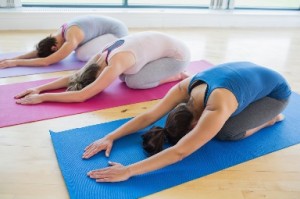The 17th National Stress Awareness Day will take place tomorrow, on the 4 November 2015 and this year’s theme this year is “Employee well-being as a worthwhile investment in your business”.
So what are the main reasons for stress at work?
Well, here in Aberdeen we aren’t going through a great climate, with ever increasing redundancies each day causing worry, anxiety and depression, overflowing workloads, relationship conflicts between colleagues, build-up of accidents and problems linked with the overall upkeep of the organisation’s image can all contribute to elevated stress levels.
Do you have a routine that helps you get rid of tension? If the answer is yes, great! When we’re happy we’re healthy and that sets us up for a longer, more fulfilled life. If the answer is no, don’t worry, we are here to help!
Many people portray stress in an extremely negative light, when in actual fact – we need stress to get ourselves through each day. That deadline, that sports competition; stress can help us to become better individuals. However, it becomes a negative factor in our life as soon as we feel or think that we are unable to cope with whatever the situation/person – a.k.a Stressor – is. Therefore, the solution may not be eradicating stress all together, it might just be changing our own perspectives and responses to stress within our lives. Here are some handy tips to help you at home:
Ask yourself the following questions and once you have done so – do you feel differently about the stress in your life?
Identify the stressor.
(whether it is a situation, person, upcoming challenge)
What are the effects of the stressor on your mood, behaviour and body?
(does it make you sad, anxious, fearful)
Can I create change, in my thoughts or actions? If so, how?
(do you have to think this way about the stressor? Is there actually a silver lining within it? Do I know exactly how to deal with it and am just spending time worrying for no reason? Is there a better way to manage it than the way I already am?)
Can I avoid the stressor?
(if you can’t change your thoughts, can you avoid the situation all together?)
Can I organise or delegate to an extent that it no longer has the previously listed effects?
Can I change my perception of the stressor so I can cope?
Can I change my reaction so I can cope?
Can I change the stressor somehow?
Can I ask for help?
Recognising stressors and stepping away from them, changing the way you react to them or changing your perception of them, even for a short period of time, can help you cope and decrease the negative side effects of stress. Additional small, easy and effective activities that may help you are:
Creating a thought log
Write down what upsets, angers or ‘stresses’ you, what is the initial situation that happened to cause these feelings, what were your thoughts/feelings, and how did you then react. This may help you find a pattern of thinking that you can then alter in order (change your perception) to decrease your stress levels.
Challenge your thoughts
Questioning how you feel again helps you evaluate if you’re having balanced thoughts. Useful questions to ask are: ‘is this really what is upsetting me?’, ‘is this worth expending so much energy on?’, ‘will this really be bothering me tomorrow/1 week/6 months’ time?’ Instead of worrying about a situation you could spend the time more beneficially practicing relaxation techniques.
Relaxation techniques:
Breathing: practice what is called 4/7/8 breathing, breathing in to the count of 4, holding your breath for the count of 7 and out to the count of 8. Doing this in times of stress can be great to help relax your body and mind, During the few moments you do this, think only about the in and out of your breath, the rise and fall of your chest. This gives you a moment to calm and step away from the possible problem at hand allowing you to then deal with it in a more calm and rational state.
Mindfulness: by ‘silencing your mind, again you can respond to situations in a more calm and rational manner. Take a few moments with your eyes closed, to focus only on the dark, blank screen you see when you have your eyes closed (the back of your eyelids essentially). As soon as a thought enters your mind take your focus back to the blank screen or your breathing. Again this can help to calm you by ensuring that you are not focussing on thoughts that may not be beneficial to you. As most of our stress, as discussed, comes from our own thoughts and perceptions of the situation – not the situation itself. This can be a difficult activity to keep complete focus on, so try performing the exercise for a minute each day and gradually build up your time once you find yourself able to focus completely for a full minute.
Yoga: Exercise produces endorphins which are our natural feel good hormone, yoga combines a fantastic mixture of breathing, mindfulness and exercise to promote great relaxing effects. Here are our best ‘stress-busting’ yoga moves for you try at home.
Child’s Pose

This resting pose quiets the mind, easing stress and anxiety whist gently stretching the back. This move is also good for the nervous and lympathic system
Legs Up Wall

This is a typical relaxation pose that also helps slow the ageing process
Standing Forward Fold
This pose helps relieve stress, fatigue and mild depression as the blood flow is being reversed. Bend knees as much as needed so you do not strain the hamstrings. Relax neck and just let yourself hang there.
Corpse Pose
This triggers the relaxation response in the body. It is actually quite a hard pose to do as we are not used to staying this still. Turn your palms up to the roof and separate legs for total relaxation.
Perform each pose and concentrate on breathing in through your nose down to your stomach and out, slowly. Hold each pose for 5 breaths before moving into the next one.
If you have any stress worries or think your organisation could use a little winter morale boos, then get in touch and find out all about our amazing stress management workshops and programmes.
Stay Happy. Stay Healthy
-The Global Health Promotions Team –


